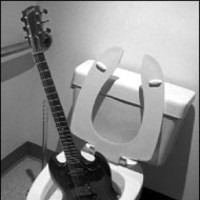Page 2 of 4
Totals like that can give consumers pause.
"People don't experiment anymore, not with the tickets $50 and up," notes Ray Waddell, who covers the touring business for Billboard magazine.
Retail CD sales take a dive
Consumers don't seem to experiment when buying CDs either. The laundry list of under-performing 2001 releases by previously platinum-selling names includes Macy Gray, Michael Jackson, George Strait, Paul McCartney, Snoop Dogg, Tori Amos, Sisqo, RZA, R.E.M., Mick Jagger, Rod Stewart, Lenny Kravitz, Prince and Mariah Carey.
Meanwhile, critical acclaim has not been able to turn the latest, widely hyped releases from Angie Stone, Bob Dylan, Radiohead, Ryan Adams, Pete Yorn, Nikka Costa or Travis into real commercial contenders either.
Accountants looking for a sales boost from a slate of superstar fourth-quarter releases have been disappointed. Labels rolled out their best shots during the make-or-break holiday shopping season (Garth Brooks, Britney Spears, Creed, Kid Rock, Jewel, DMX, Master P, Limp Bizkit, along with greatest hits from Pink Floyd, Madonna, the Bee Gees, Smashing Pumpkins and Green Day), but it didn't work.
For the first two crucial weeks after Thanksgiving, album sales were down an alarming 15 percent compared to the same time period last year, according to SoundScan despite dramatic efforts to drum up business by some national music chains.
In an unusual bout of boosterism, the Recording Industry Association of America even commissioned a poll to find out that 79 percent of people consider a CD the type of gift they would "like a lot" this holiday season.
Still, music industry veterans are wondering where their Harry Potter is, or at least their Monsters Inc. a piece of irresistible pop product that had consumers reaching for their wallets during the fourth quarter.
This time last year it was the Beatles' 1 along with the since-faded Backstreet Boys and their Black & Blue. Both were selling at the clip of more than 500,000 CDs a week. Currently, only God-fearing rock band Creed and their Weathered release is doing truly blockbuster business, having sold nearly 2 million copies in just three weeks time.
"I don't know if there's a companion album for Creed to run with," says Geoff Mayfield, Billboard magazine's director of charts. But Mayfield stresses that whatever declines the business sustains this year have to be kept in context. Last year also saw monster records from Eminem, Britney Spears and 'N Sync, which are difficult to replicate. "In 2000 we had six albums that sold a million-plus in their first week. Before last year, we'd never had six albums sell a million copies their first week, period. When we're all done, this year the numbers will stack up handsomely."
Those on the front lines of music retail, though, aren't so optimistic. "It's the worst year in our history," reports Carl Singmaster, who's been running Manifest Disc & Tapes, now a seven-store chain in the Southeast, for 17 years. He's the type of grassroots music retailer who's served as the industry's foundation for decades and often enjoyed double-digit growth each year. Suddenly, Singmaster doesn't like what he sees: "I'm very concerned about what kind of future there is for music retails like me."
"I'd say across the board [sales] for mom-and-pop music stores are down 11 percent this year," says Don Van Cleve, president of the Coalition of Independent Music Stores. "It's always been a tough business, but now it's a brutal one."
Just ask the suits at Trans World Entertainment, the country's largest music retailer and the owner of nearly 1,000 record shops, including Camelot, Strawberries and the chain that calls itself "fye." Through the first three quarters, Trans World posted a net loss of $17 million. It's never a good sign when an industry's No. 1 retailer routinely fails to post a profit.
At least Trans World outperformed Tower Records. The 41-year-old chain, which started as a Sacramento drugstore and during the 80s championed CDs while turning its enormous catalog-stuffed stores into cultural meeting places, lost $40 million over the first nine months of the year. By contrast, in 1995 the chain pocketed $15 million in profits. A last-minute deal with creditors in October allowed Tower to keep its doors open, at least through April.
Music retailers have a laundry list of concerns, such as sky-high $19.98 CD list prices set by record companies, the shrinking pool of commercial singles, and major labels' rewarding mass merchants like Best Buy with exclusive product. (U2's recent DVD concert release was shipped to Best Buy two weeks before any other retailer.)
"There's a million things going on and none of them are positive," complains Van Cleve.
The record labels are generally implacable in the face of complaints about rising prices. Decades of experience has shown them that when fans really want a new record whether it's Garth Brooks, Madonna, the Backstreet Boys or the hot new band of the moment resistance to new, higher prices evaporates. The trouble today is that not as many fans want the new BSB or Garth Brooks, and there is no dominant commercial trend.
Speaking of Metrobeat.html
-
The Need is Great
Nov 13, 2002 -
Suite Proposition
Oct 23, 2002 -

Lazes Touts Elmwood Area
Oct 9, 2002 - More »
Latest in News
More by Eric Boehlert
-

Music Industry Down The Toilet?
Jan 5, 2001 - More »






